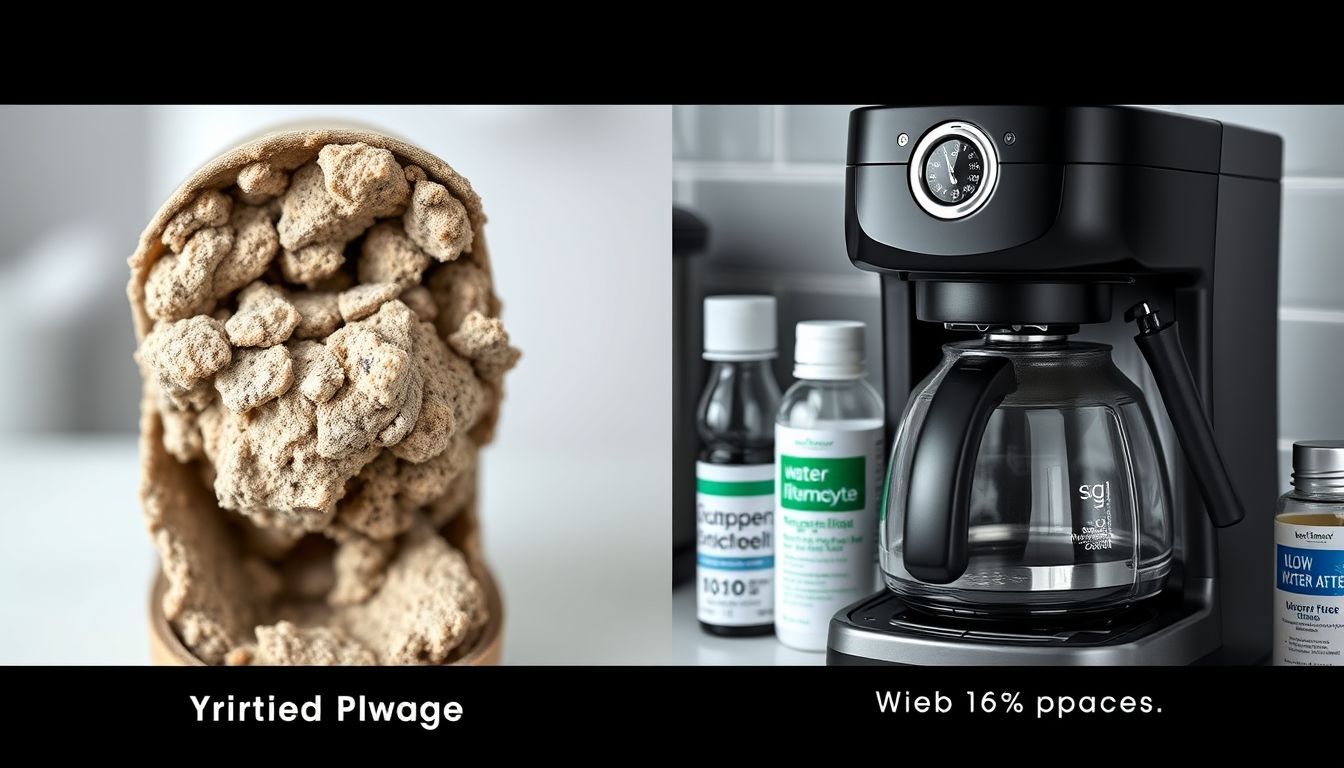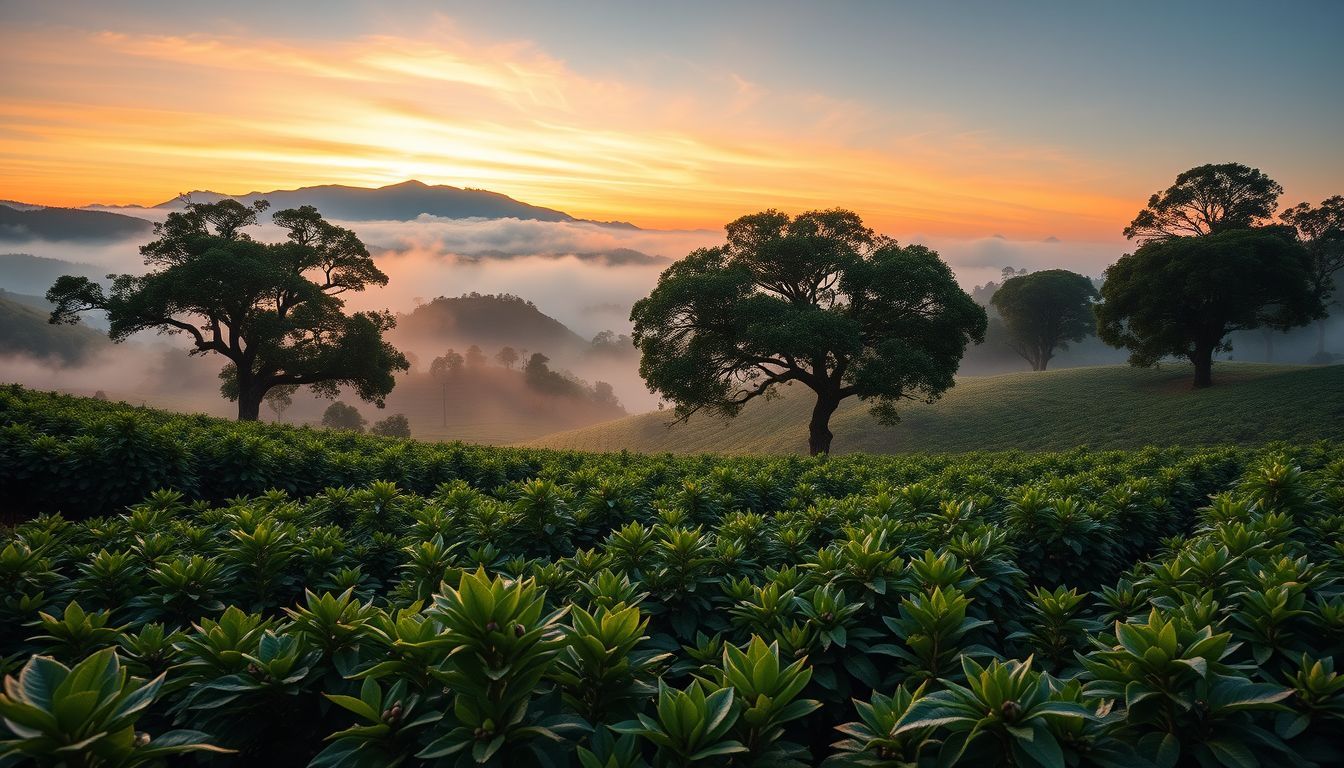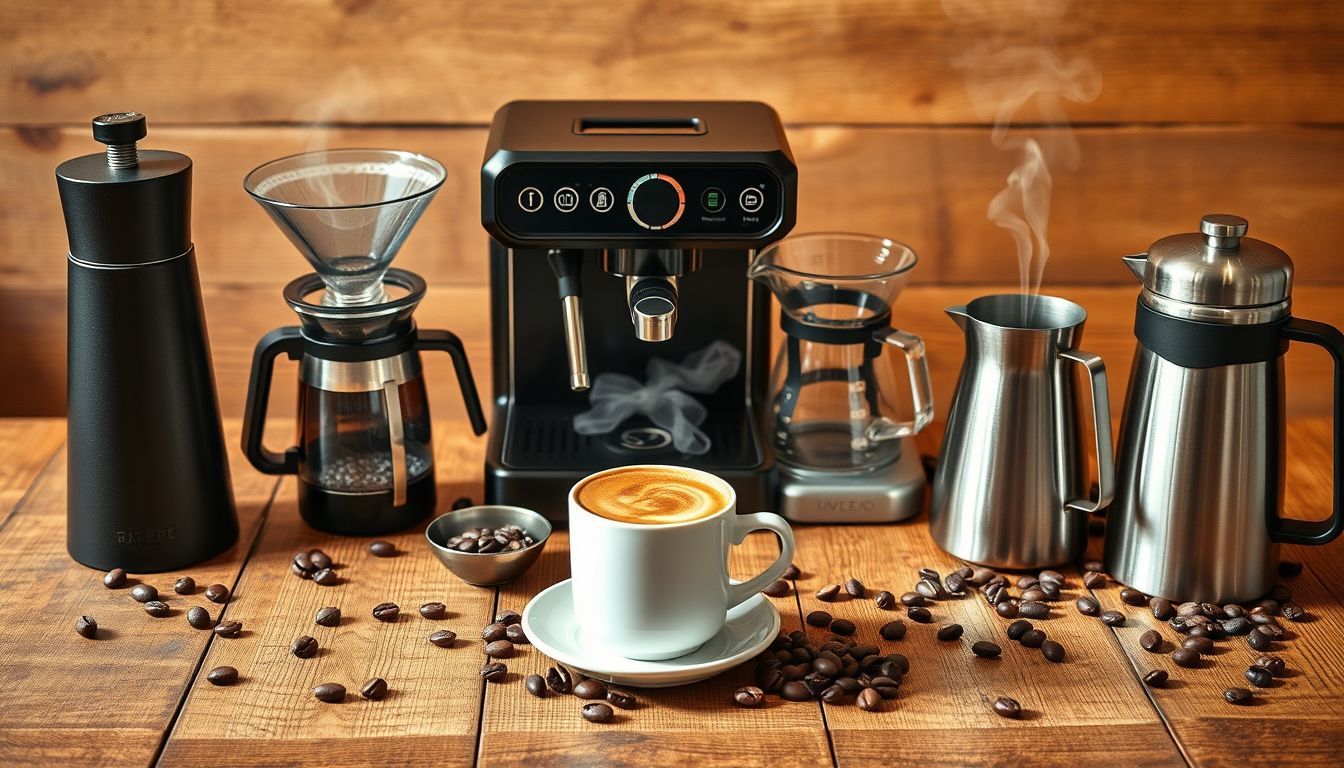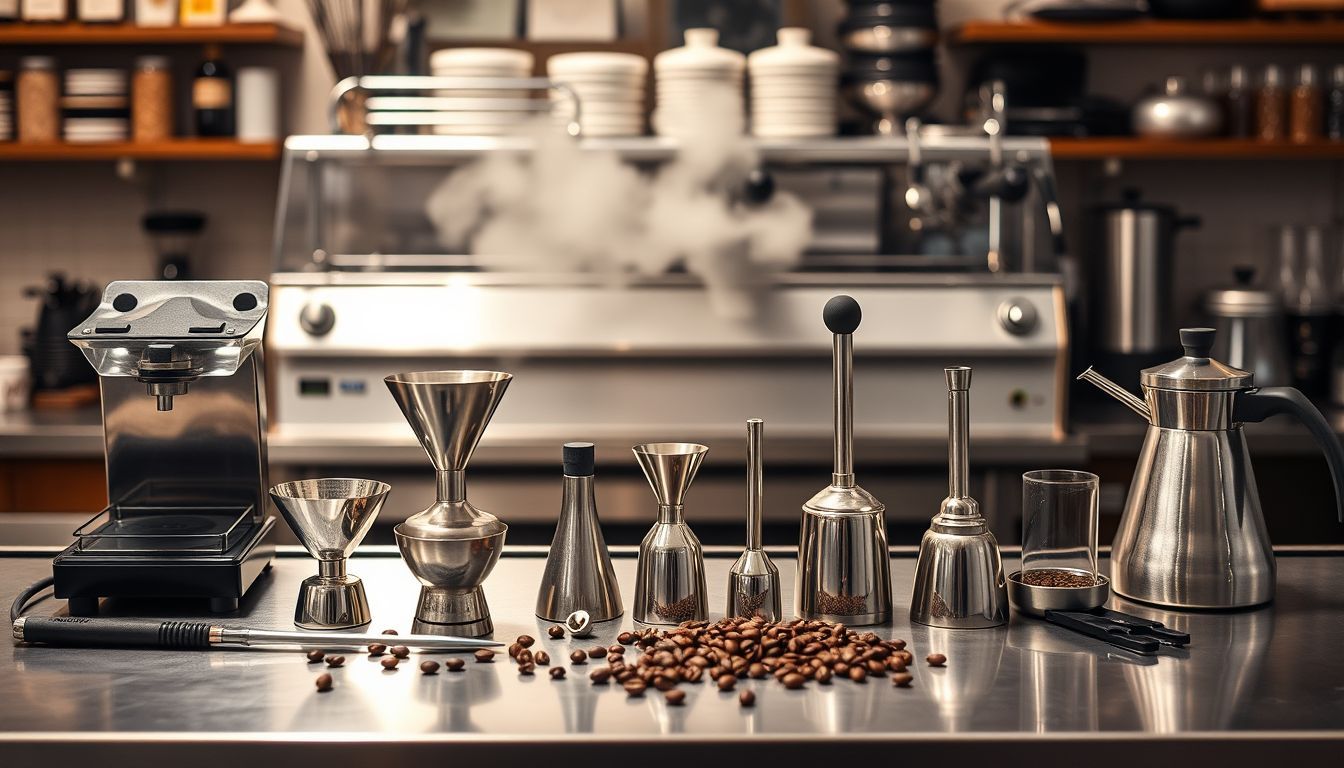The Best Coffee Makers for Hard Water Areas (And How to Fight the Mineral Menace)
Hard water destroys coffee makers and ruins flavor. Discover equipment designed to handle mineral-rich water plus strategies to protect your investment and improve your coffee.

Amazon Affiliate Disclosure
This post contains affiliate links. If you purchase through these links, we may earn a small commission at no additional cost to you.
The Best Coffee Makers for Hard Water Areas (And How to Fight the Mineral Menace)
Last month, I received a desperate email from a reader in Phoenix: "I've killed three coffee makers in two years. They start great, then slowly brew weaker coffee until they stop working entirely. What am I doing wrong?" The answer wasn't technique or maintenance—it was geography. Phoenix has some of the hardest water in the United States, and this reader was learning the expensive lesson that standard coffee equipment simply can't survive in high-mineral environments.
Hard water is the silent killer of coffee equipment, slowly strangling machines with mineral buildup while simultaneously destroying coffee flavor through over-extraction and metallic off-tastes. If you live in areas with hard water—which includes roughly 85% of the United States—your choice of coffee maker can mean the difference between years of reliable service and a graveyard of prematurely dead machines.
As someone who has tested coffee equipment in water conditions ranging from the soft mountain springs of Vermont to the mineral-rich wells of Arizona, I've learned that hard water requires a completely different approach to equipment selection. The machines that work beautifully in soft water areas become maintenance nightmares in hard water regions, while equipment designed for mineral-rich conditions can provide years of reliable service.
Today, we're exploring the unique challenges that hard water presents to coffee equipment, identifying machines specifically designed to handle high-mineral conditions, and building strategies to protect your investment while improving your coffee quality.
Understanding Hard Water: The Coffee Equipment Killer
Before diving into equipment recommendations, let's understand what makes water "hard" and why it's so destructive to coffee makers.
What Makes Water Hard
Mineral Content
Hard water contains high concentrations of dissolved minerals, primarily:
- Calcium carbonate (limestone)
- Magnesium sulfate
- Iron compounds
- Other trace minerals
Measurement Standards
Water hardness is measured in grains per gallon (gpg) or parts per million (ppm):
- Soft: 0–3.5 gpg (0–60 ppm)
- Moderately hard: 3.5–7 gpg (60–120 ppm)
- Hard: 7–10 gpg (120–180 ppm)
- Very hard: 10+ gpg (180+ ppm)
Geographic Distribution
Hardest water regions in the US include:
- Southwest (Arizona, Nevada, New Mexico)
- Great Plains (Kansas, Nebraska, Oklahoma)
- Parts of Texas, Florida, and California
- Industrial areas with mineral-rich groundwater
How Hard Water Destroys Coffee Equipment
Scale Buildup
When hard water is heated, dissolved minerals precipitate out and form scale deposits that:
- Clog internal water pathways
- Insulate heating elements, reducing efficiency
- Create rough surfaces where bacteria can grow
- Eventually cause complete system failure
Performance Degradation
Scale buildup causes:
- Reduced water flow rates
- Inconsistent brewing temperatures
- Longer brewing times
- Weaker coffee extraction
- Increased energy consumption
Component Failure
Hard water accelerates:
- Heating element burnout
- Pump mechanism failure
- Valve and seal deterioration
- Electronic component corrosion
- Premature replacement needs
Impact on Coffee Quality
Over-Extraction Issues
High mineral content in brewing water causes:
- Excessive extraction of bitter compounds
- Harsh, metallic flavors
- Reduced coffee clarity
- Masked origin characteristics
- Unbalanced acidity
Inconsistent Results
Scale buildup creates:
- Variable brewing temperatures
- Uneven water distribution
- Unpredictable extraction times
- Inconsistent coffee strength
- Frustrating brewing experiences
Coffee Makers Designed for Hard Water Survival
Built-in Water Treatment Systems
Some coffee makers include integrated filtration specifically designed to handle hard water conditions.
Technivorm Moccamaster with Water Filter
Price Range: $350–$400
Hard Water Features:
- Integrated water filtration system
- Copper heating element (corrosion resistant)
- Accessible internal components for descaling
- Robust construction designed for longevity
- Easy maintenance and part replacement
We recommend the Technivorm Moccamaster 53941 KBGV Select 10-Cup Coffee Maker for its precise temperature control and superior hard-water resilience.
Breville Precision Brewer with Water Filter
Price Range: $300–$350
Hard Water Features:
- Advanced water filtration system
- Descaling alerts and automated cycles
- Stainless steel construction
- Multiple brewing modes for water adaptation
- Comprehensive maintenance indicators
The intelligent water quality monitoring and customizable parameters of the Breville Precision Brewer Drip Coffee Machine make it a standout in hard water environments.
Manual Brewing Methods: Hard Water Champions
Manual brewing methods often perform better in hard water areas because they're easier to clean and maintain.
Pour-Over Systems
Chemex Classic ($44) + Water Filtration
Advantages for hard water:
- No internal components to clog
- Easy cleaning and maintenance
- Glass construction resists mineral staining
- Complete control over water quality
- No electrical components to corrode
Hario V60 ($25) + Precision Kettle
Hard water benefits:
- Simple construction with no moving parts
- Easy descaling of kettle components
- Ceramic/glass options resist staining
- Complete brewing control
- Minimal maintenance requirements
We suggest the Hario V60 Ceramic Coffee Dripper for its reliability and ease of cleaning in mineral-rich water.
French Press Systems
Bodum 34 Oz Brazil French Press Coffee Maker ($100)
Hard water advantages:
- Stainless steel construction
- No heating elements to scale
- Easy disassembly for cleaning
- Double filtration system
- Insulated design maintains temperature
The Bodum 34 Oz Brazil French Press Coffee Maker is built to last and handles hard water with minimal fuss.
Espresso Machines for Hard Water Areas
Espresso machines face unique challenges in hard water areas due to their complex internal systems and high operating pressures.
Breville Bambino Plus with Enhanced Filtration
Price Range: $300
Hard Water Features:
- Fast heat-up reduces scale formation time
- Accessible descaling procedures
- Compact design simplifies maintenance
- Automatic purge cycles
- Integrated descaling alerts
For a compact, hard-water-ready espresso machine, try the Breville Bambino Plus Espresso Machine BES500BSS. Its robust filtration and easy maintenance make it ideal for challenging water conditions.
Rancilio Silvia with Water Softening
Price Range: $800
Hard Water Advantages:
- Commercial-grade construction
- Brass boiler resists corrosion
- Accessible internal components
- Strong aftermarket support
- Designed for high-volume use
Maintenance considerations:
- Professional-grade descaling required
- Water softening system recommended
- Regular professional servicing beneficial
- Parts readily available for repairs
Water Treatment Solutions
Point-of-Use Filtration
Pitcher Filters
- Brita Longlast ($25 + $8/filter)
- ZeroWater 10-Cup ($35 + $15/filter)
Dedicated Coffee Water Systems
- Third Wave Water ($15/packet)
- Peak Water Filters ($89 + $12/filter)
Whole-House Solutions
- Traditional Salt-Based Softeners ($500–$1,500)
- Salt-Free Conditioners ($800–$2,000)
Maintenance Strategies for Hard Water Areas
Descaling Schedules
| Hardness Level | Drip Coffee Makers | Espresso Machines | Electric Kettles | Manual Equipment |
|---|---|---|---|---|
| Very Hard (10+ gpg) | Every 2–3 weeks | Every 2–4 weeks | Weekly | As needed |
| Hard (7–10 gpg) | Monthly | Every 4–6 weeks | Bi-weekly | Monthly |
| Moderately Hard | Every 6–8 weeks | Every 2–3 months | Monthly | As needed |
Descaling Products and Procedures
- Dezcal Activated Scale Remover
- Full Circle Descaling Powder
- White Vinegar Solution (1:1)
- Citric Acid Solution (2 tbsp per quart)
Preventive Maintenance
- Use filtered water for all brewing
- Empty water reservoirs when not in use
- Rinse brewing chambers after use
- Deep clean removable parts weekly
Regional Considerations and Recommendations
Southwest United States
- Extremely hard (12–20+ gpg)
- Manual methods & whole-house softening essential
Great Plains
- Very hard (10–15 gpg)
- Robust machines & enhanced filtration
Florida and Coastal Areas
- Hard to very hard (8–12 gpg)
- Corrosion-resistant components & multi-stage filtration
Conclusion: Winning the Hard Water War
Living in a hard water area doesn't mean you have to accept inferior coffee or constantly replace equipment. With the right combination of hard water-appropriate equipment, effective water treatment, and proactive maintenance, you can enjoy excellent coffee while protecting your investment.
The key insight is that hard water requires a fundamentally different approach to coffee equipment selection and maintenance. Equipment that works beautifully in soft water areas becomes a liability in mineral-rich environments, while machines designed for hard water conditions can provide years of reliable service.
Investing in proper water treatment—whether point-of-use filtration or whole-house systems—often proves more cost-effective than repeatedly replacing damaged equipment. The upfront cost of quality filtration pays for itself through extended equipment life, improved coffee quality, and reduced maintenance headaches.
Most importantly, don't let hard water discourage you from pursuing great coffee. Some of the world's best coffee regions have challenging water conditions, and local coffee cultures have developed techniques and equipment to work with their environment rather than against it.
Your geographic location shouldn't determine your coffee quality. With the right equipment, proper water treatment, and consistent maintenance, you can brew exceptional coffee regardless of what comes out of your tap.
What's your experience with hard water and coffee equipment? Have you found machines that consistently perform well in mineral-rich conditions, or discovered water treatment solutions that made a significant difference? I'm always interested in hearing about real-world strategies for dealing with challenging water conditions.

Sofia Rossi
I started my career in a world of spreadsheets and boardrooms, but I quickly realized the most interesting data was in the way people interacted when the pressure was on. My novels are my way of analyzing the human heart—the messy, complicated, and often hilarious parts. I write about the lives we lead now, with all the love, ambition, and absurdity that comes with it.


